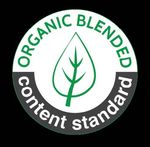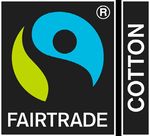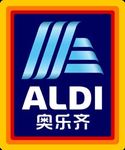SUSTAINABLE COTTON International Buying Policy for - ALDI SOUTH Group
←
→
Page content transcription
If your browser does not render page correctly, please read the page content below
1 International Buying Policy for Sustainable Cotton
International Buying Policy for
SUSTAINABLE COTTON
ALDI SOUTH Group 06/20212 International Buying Policy for Sustainable Cotton
OUR COMMITMENT
Simplicity, consistency and responsibility: for over 100 years, these traditional business values have formed the
foundation of ALDI’s1 success. It is this success, which forms the basis of our efforts to further develop our operations
and assume more responsibility for our supply chains. Our aim is to contribute towards positive and sustainable
development wherever possible.
Cotton accounts for the majority of all fibres used in the garments and household textiles offered by ALDI.
According to the Food and Agriculture Organisation of the United Nations (FAO), the key countries of cotton
cultivation (with regard to raw fibre volumes) are China, India and the USA. There are around 250 million people
in over 80 countries worldwide involved in the production of cotton, primarily in developing and emerging
countries. Whilst cotton is a renewable natural resource that is fully biodegradable, it is also linked to social,
economic, and ecological risks in the countries where it is grown.
To promote the environmentally and socially responsible production of the goods we offer, we will increase
the use of sustainable cotton and ensure that only sustainable cotton is used for our own-brand products and
household textiles from 2025 onwards.
1
‘ALDI‘ refers to the ALDI SOUTH Group (hereinafter also referred to as ‘ALDI SOUTH‘) and the ALDI Nord Group (hereinafter also referred to as ‘ALDI Nord‘).
Both business groups are legally independent groups of retail companies trading under the ALDI brand.3 International Buying Policy for Sustainable Cotton
OUR APPROACH
Our everyday decisions as responsible retailers have an impact on our entire supply chain. ALDI has always
focussed on establishing close and reliable working relationships with its business partners. We assume a shared
responsibility for the preservation of natural resources and we will work together in order to achieve the goal
defined within this ‘International Buying Policy for Cotton’.
The current version of the ‘International Buying Policy for Cotton’ forms a binding framework and requirement for
ALDI and its business partners. ALDI will only collaborate with those who conduct their business in accordance with
our commitment to sustainable cotton sourcing.
ALDI is collaborating together with other companies, certification schemes and other stakeholders to enhance
sustainable cotton cultivation and to improve existing systems. We welcome individual sustainability projects and
initiatives undertaken and promoted by our business partners concerning the cultivation of cotton, as well as any
information that they proactively publish on the measures taken and developments achieved.
ALDI’s sustainable sourcing of cotton goals have been developed by the Corporate Responsibility, Buying, and
Quality Assurance Departments and will be implemented in collaboration with our business partners and other
relevant stakeholder groups, such as scheme owners.
This ‘International Buying Policy for Cotton’ governs the purchase of own-brand products made from or containing
cotton in the area of garments and household textiles. This policy and its goals constitute a binding requirement
for the tendering and buying processes. ALDI has appropriately informed its business partners involved in the
production of own-brand products regarding the content and goals of the policy. This policy will be reviewed and
updated on an ongoing and regular basis.
The most recent and applicable version of the ‘International Buying Policy for Cotton’ is published on the websites
of ALDI SOUTH and ALDI Nord.4 International Buying Policy for Sustainable Cotton
OUR IMPLEMENTATION
We have made a commitment to the following goal:
Use of 100%
sustainable cotton by 2025
Together with our business partners, we are committed to social, ecological and economic standards with
regard to achieving long-term sustainable improvements in the cultivation of cotton.
By 2025, we will therefore require the cotton used for our own-brand products to be of either recycled origin or
certified according to one of the following internationally recognised sustainability standards:
Global Organic Textile Standard (GOTS) / GOTS ‘organic - in conversion’
Organic Content Standard (OCS) 100/blended
Cotton made in Africa (CmiA)
Better Cotton Initiative (BCI)
FAIRTRADE
By using these standards, we are focussing on the sustainable cultivation of raw materials. However, we are
also committed to compliance with social and environmental standards during the processing of cotton.
As part of our 100% goal, we actively promote the topic of sustainable cotton by providing a wide variety
of information on our product packaging, as well as via a number of other communication channels.
More information on actions through which we promote sustainable cotton cultivation is available on the
ALDI SOUTH and ALDI Nord websites.5 International Buying Policy for Sustainable Cotton
INTERNATIONALLY RECOGNISED SUSTAINABILITY STANDARDS:
Global Organic Textile Standard (GOTS):
The Global Organic Textile Standard (GOTS) defines globally consistent and
rigorous criteria for the processing of textiles made from certified organic
natural fibres throughout the entire supply chain. These criteria include the
controlled organic harvesting of fibres, environmentally friendly and socially
responsible production and consistent labelling of products. Compliance
with the guidelines is verified throughout the supply chain with regard to the
use of chemical additives and the core labour standards of the International
Labour Organisation (ILO). Only textiles products, which contain at least
70% organically produced natural fibres may receive GOTS certification. This
certification needs to be issued by an independent testing institute. ALDI
also accepts GOTS ‘organic - in conversion’ that supports farmers in their
transitioning period from conventional cotton to organic cotton farming.
Organic Content Standard (OCS):
The Organic Content Standard (OCS) enables the exact share of ecologically
sound materials contained in a product to be recorded. The OCS tracks the
use of certified, organically produced natural fibres, from the creation of
the individual fibres to the finished product. Depending on the share of
organically produced fibres contained, the certified product displays either
the ‘OCS blended‘ logo (contains at least 5%) or the ‘OCS 100‘ logo (contains
95-100%). ALDI requires cotton in OCS blended labelled products to be of
100% organic origin and only allows blending with non-cotton materials.
Cotton made in Africa (CmiA):
Following the principle of ‘helping others to help themselves‘, Cotton made in Africa
provides smallholders with training in modern, efficient, and environmentally
friendly cultivation methods. In addition to this, it also imparts basic knowledge
of business and economics. Pre-financing measures, the protection of natural
conservation areas, and the ban of genetically modified cottonseed are just as
much a part of the CmiA standard as compliance with the ILO core labour standards
and the promotion of women‘s equal rights.6 International Buying Policy for Sustainable Cotton
Better Cotton Initiative (BCI):
The Better Cotton Initiative seeks to reduce the negative impacts of cotton
production on people and planet. The basic principles of the BCI include
the elimination of harmful pesticides and the efficient use of water, the
preservation of soil fertility, as well as the compliance with minimum social
criteria and the prohibition of child and forced/bonded labour.
FAIRTRADE:
Fairtrade gives the cotton growers the security to sell their cotton
at a fixed minimum price, which covers the costs associated with
sustainable production. In addition, smallholder cooperatives receive
a Fairtrade premium, which is then invested in community projects.
The Fairtrade standards not only cover social and economic criteria: in
terms of ecologically sustainable agriculture, Fairtrade also promotes
environmentally friendly cultivation practices, while prohibiting genetic
engineering and regulating the use of pesticides.7 International Buying Policy for Sustainable Cotton
HOFER Kommanditgesellschaft
Global Sourcing & Corporate Responsibility International
Alte Bundesstraße 10
A-5071 Wals
VAT Reg. No.: ATU24963706
Commercial register: FN 26451z, Regional Court of Wels
First Edition: 01/2020
Revised & Updated Edition: 06/2021
Contact:
Corporate Responsibility International (CRI)
responsibility@aldisouthgroup.com
Please see cr.aldisouthgroup.com for more information on
our international corporate responsibility activities.You can also read



























































